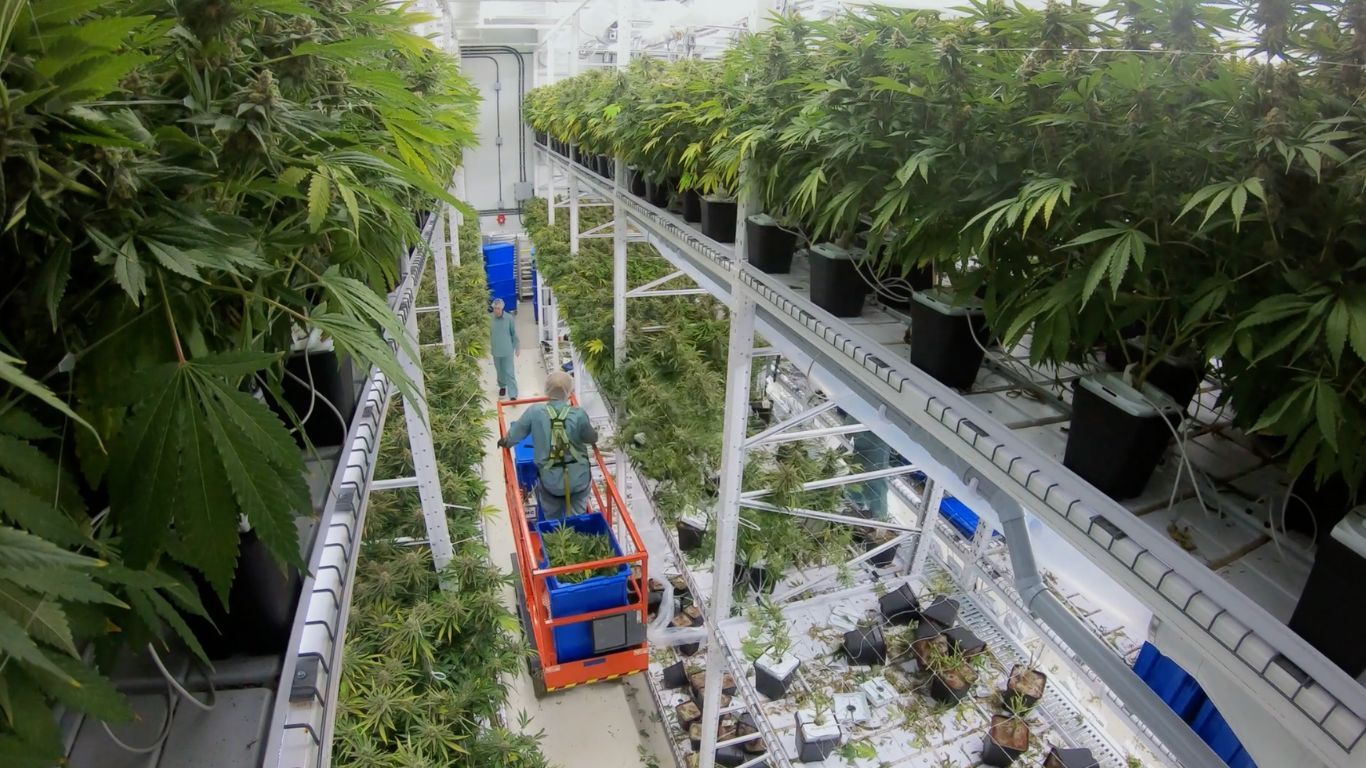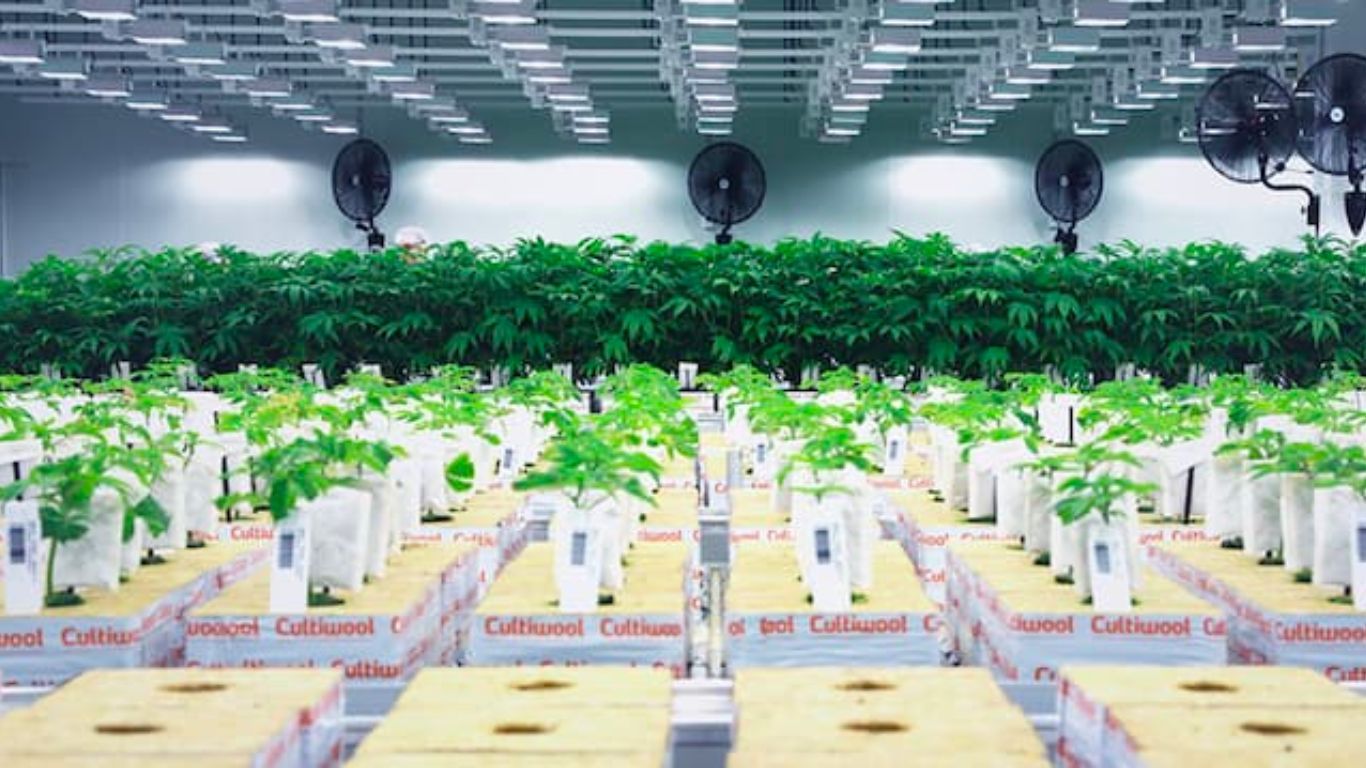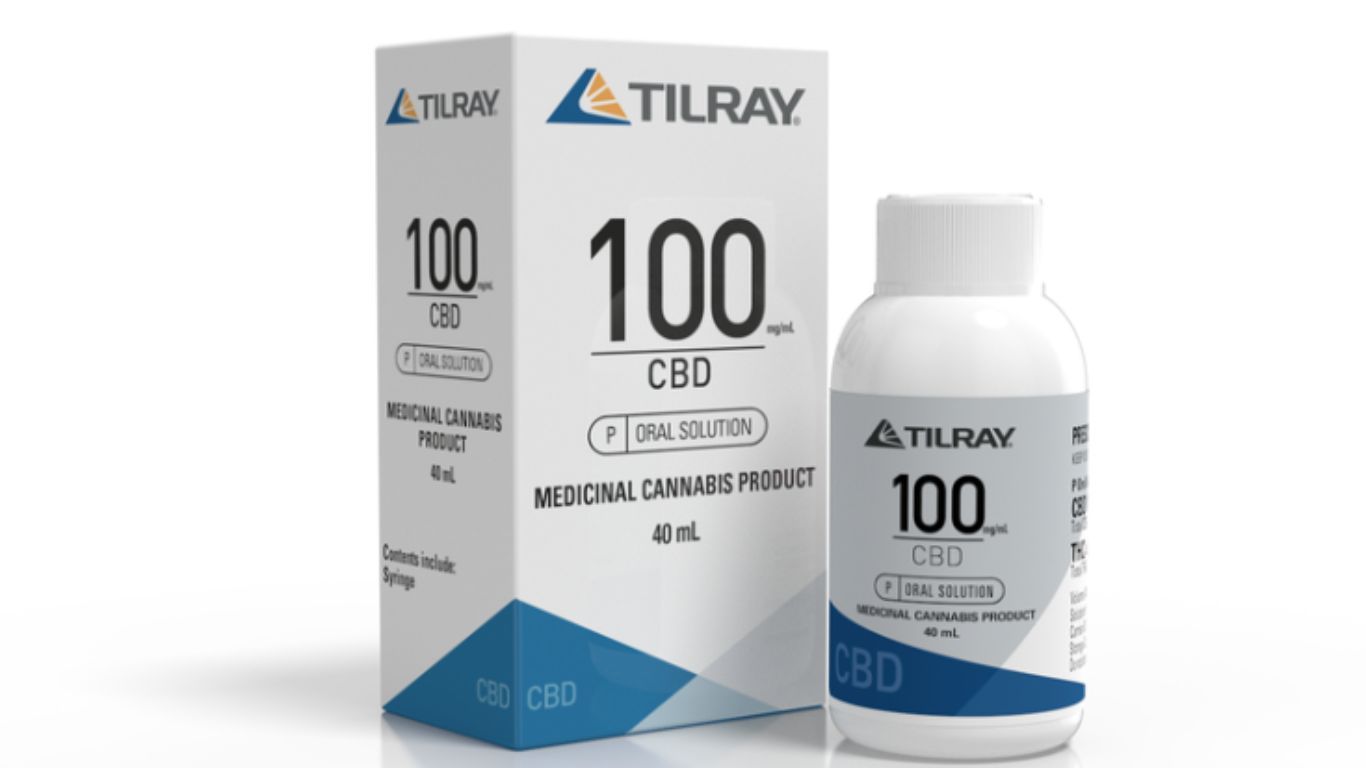
Organigram reported another loss compared to the same period last year, according to the newest quarterly report for Q2 Fiscal 2024 ending March 31, 2024.
The Moncton, New Brunswick-based company reported $37.6 million in net revenue for the first three months of 2024, compared to $39.5 million in the first three months of 2023, a 5% decline. It also declined from $36.5 in net revenue in Q1 2024. Organigram attributes this decline to lower international revenue.
The majority of sales were in the Canadian non-medical market (88%), while 6% were from the international market, and 1% were in medical sales in Canada. Another 5% of sales were related to other revenues.
Revenue from sales of flower and oil on the international market for the six months ended March 31, 2024, was $3.2 million, compared to $16.6 million for the six months ended February 28, 2023.
Organigram also reports continued price compression, with the average net selling price of “recreational” non-medical cannabis flower dropping to $1.51 per gram in Q2 Fiscal 2024, compared to $1.81 per gram in the same period in Q2 2023. Sales of flower from all product categories in the non-medical market was 51% of the company’s total net revenue in the quarter.
Organigram sold 16,811 kg of dried cannabis flower in Q2 2024, an 18% increase from the same quarter in 2023.
Net loss for Q2 2024 was $27.1 million, a 262% increase from the $7.5 million loss in the same quarter in 2023, which the company blames on “lower unrealized gain on changes in the fair value of biological assets and change in fair value of derivative liabilities.” This is also an increase compared to the Q1 2024 loss of $15.8 million.
Adjusted EBITDA for Q2 2024 was negative $1 million compared to $5.6 million in Q2 2023, which the company blames on lower international sales compared to Q2 Fiscal 2023.
“Our higher international sales in Q2 Fiscal 2023 resulted in a comparatively lower adjusted gross margin rate in Q2 Fiscal 2024,” said Greg Guyatt, Chief Financial Officer. “However, we are expecting international revenue to continue along the growth trajectory we have seen over the last two quarters while lower cultivation costs, which we achieved beginning in Q2 Fiscal 2024, begin to flow through to our income statement in Q3 fiscal 2024. As we head into the second half of our fiscal year, we are on track to deliver full-year adjusted EBITDA that will exceed that of Fiscal 2023 and positive cash flow from operations before working capital changes.”
Organigram completed its first bulk dried flower shipment to the German medical market in January 2024. The company also completed its first flower shipment to 4C LABS for distribution in the UK. In March, Organigram submitted a voluntary response to the Israeli government’s claims of “product dumping” from Canadian cannabis companies. Organigram maintains that it has not engaged in these practices.
Organigram submitted its EU GMP certification application for its Moncton facility in Q1 2024 and expects to enter into an audit phase by the end of this fiscal year.
The Company says it does not anticipate significant loss for non-performance, except potentially from outstanding receivables from one of its international customers, which is not named.
In a call discussing the results, Organigram CEO Beena Goldenberg said:
“We signed two new supply agreements with medical cannabis suppliers in Australia and the U.K., all while exploring additional opportunities in entirely new markets for Organigram. Our international revenue saw significant decline versus Q2 fiscal 2023, driven by a large reduction in sales to Israel as we await payment of an outstanding receivable. We are working with our Israeli customer on a payment plan and are optimistic that we will resume shipments to Israel in due course. That said, we are very encouraged by our return to international sales growth over the last three quarters, supported by our new international customers.”
In March 2024, Organigram again received notice from Health Canada that its “edible extracts” lozenges sold as Jolts are an edible, not an extract, and are subject to the 10 mg THC limit for cannabis edibles rather than the 1,000 mg THC limit for extracts.
In April, Organigram announced that its popular milled, dried flower brand SHRED has reached more than $200 million in annual retail sales.
The company has a cultivation and processing facility in Moncton, NB, a manufacturing facility in Winnipeg, and a cultivation facility in Lac-Supérieur, Quebec.
Featured image via Organigram











